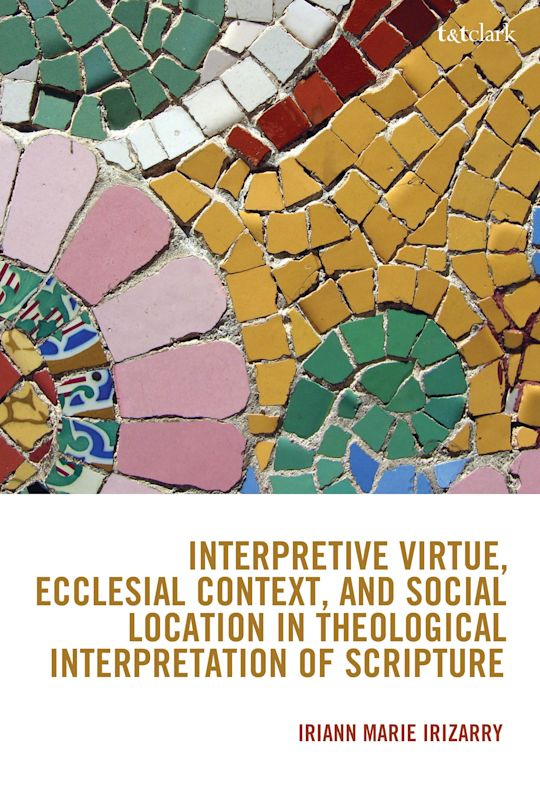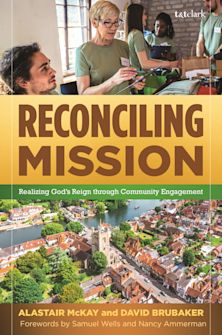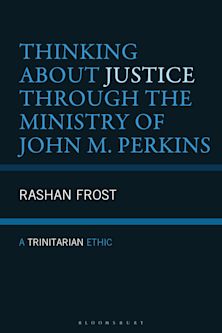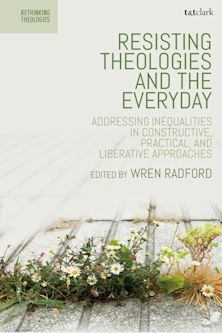- Home
- ACADEMIC
- Theology
- Theology and Society
- Interpretive Virtue, Ecclesial Context, and Social Location in Theological Interpretation of Scripture
Interpretive Virtue, Ecclesial Context, and Social Location in Theological Interpretation of Scripture
Interpretive Virtue, Ecclesial Context, and Social Location in Theological Interpretation of Scripture
Get 40% on two or more titles from T&T Clark
Payment for this pre-order will be taken when the item becomes available
You must sign in to add this item to your wishlist. Please sign in or create an account
Description
This study examines contemporary Theological Interpretation of Scripture, focusing on the portrayal of the virtuous reader within an ecclesial context.
By comparing the approaches of Ephraim Radner and Richard B. Hays, it highlights the differing emphases on interpretive virtues: humble receptivity (Radner) and poetic attentiveness (Hays). The study then incorporates an explicitly contextual Latina theological perspective (supported by Latina Evangélica voices), emphasizing the importance of incorporating marginalized voices in theological interpretation to enrich the understanding of interpretive virtues and, by extension, the church as a whole.
Table of Contents
Chapter 2: The Virtuous Reader in Radner's Time and the Word
Chapter 3: The Virtuous Reader in Hays's Echoes of Scripture in the Gospels
Chapter 4: Which Reader? Humble Receptivity and Poetic Attentiveness in Dialogue
Chapter 5: Summary, Conclusions, and Recommendations for Further Study
Bibliography
Product details
| Published | Feb 19 2026 |
|---|---|
| Format | Ebook (Epub & Mobi) |
| Edition | 1st |
| Extent | 192 |
| ISBN | 9798765150818 |
| Imprint | T&T Clark |
| Publisher | Bloomsbury Publishing |
About the contributors
Reviews
-
Iriann Marie Irizarry's Interpretive Virtue, Ecclesial Context, and Social Location in Theological Interpretation of Scripture offers theological interpreters of Scripture an abundance of gifts. These gifts arise from her close analytical work; her deep sense of the importance of ecclesial context and her compelling call to open wide the doors of theological interpretation to more and differently located interpreters. Prepare to welcome these gifts when you read this work.
Stephen Fowl, President and Dean, Church Divinity School of the Pacific
-
Iriann Marie Irizarry's Interpretive Virtue, Ecclesial Context, and Social Location in Theological Interpretation of Scripture offers a rich and illuminating treatment of what it means to be a virtuous interpreter of Scripture. Combining careful analysis with attention to voices from the margins and caution against undue privileging of particular voices and contexts, Irizarry reminds us that how we read Scripture is inseparable from who we are as readers. In doing so, she exemplifies the virtues she commends-humility, attentiveness, and faithfulness. Highly recommended for all who seek to read Scripture with care and virtue.
John C. Peckham, J.N. Andrews Professor of Systematic Theology and Philosophy, Andrews University
-
In this book, Iriann Marie Irizarry simultaneously clarifies an important topic with within the field of Theological Interpretation, interpretive virtue, and contributes to the field of Contextual Interpretation by providing a robust biblical hermeneutic for Latina evangélica communities. By engaging both theological and contextual interpretation, Irizarry breaks new ground for both fields since little work has been done on integrating both disciplines. By having one foot planted firmly within the academy and the other within marginalized ecclesial communities, Irizarry provides much needed contributions to scholarship as well as practical wisdom for the church. I highly recommend this work!
Bo H. Lim, Seattle Pacific University
-
Dialoguing with scholars from both the field of theological interpretation of Scripture and the Latine community, especially evangélica scholars, Dr. Irizarry provides an avenue for a more inclusive approach to the reading and theological interpretation of the Bible, one that pays attention to social and ecclesial contexts. On the one hand, she invites the readers to develop theological interpretations of the Bible with fresh eyes, paying attention to their own social location, issues, and perspectives. On the other hand, she challenges the scholarly community to listen to and include in their theological discussions the voices of marginalized communities. The aim of this inclusive process is to enrich the theological interpretation of Scripture as well as the life of the church as a whole
Nora O. Lozano, Executive Director, Christian Latina Leadership Institute



































